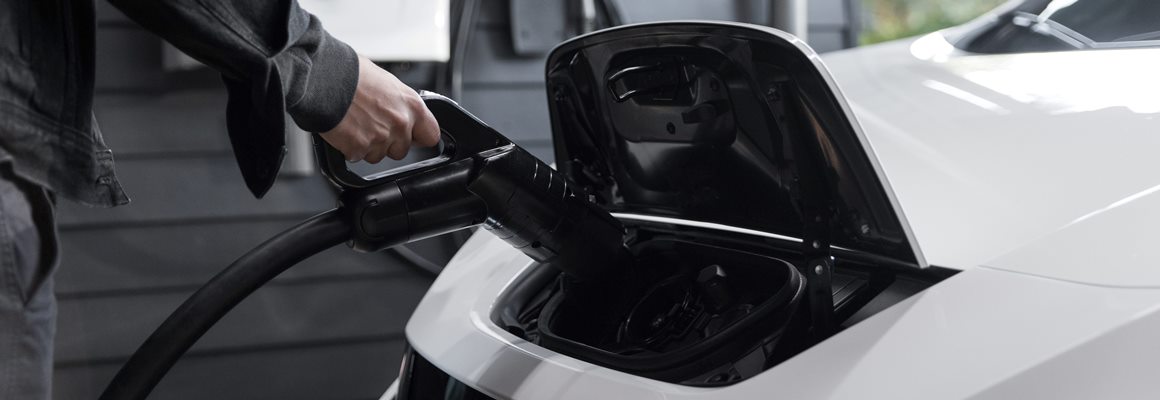Electric Vehicle (EV) Charging Points For Blocks Of Flats
“Do we need permission to install electric vehicle charging points? Would we need to amend our leases? What if not all the tenants at the block agree or want them?”
We’re receiving lots more enquiries about EV charging points. Many of these calls and emails are from managing agents on behalf of freeholders and leaseholders.
And we’re expecting lots more enquiries. The government’s EV Chargepoint Grant funds up to 75% of the costs of installing a charging point, up to £350 inc VAT per installation. (It replaces the old Electric Vehicle Homecharge Scheme, which is no longer available to new applicants.)
EVs are not the only green alternative to petrol and diesel vehicles. But they are the option that has captured the public’s imagination. Especially as the government is committed to stopping the sale of new petrol and diesel cars by 2030. (And all new cars and vans must be zero emission at the tailpipe by 2035 – affecting plug-in hybrids.)
How Leasehold Law Affects The Installation Of Electric Vehicle Charging Points At Blocks Of Flats
Thinking about installing EV charging points at your block? There are two important considerations with regard to residential leasehold law:
- Licence – the freeholders/management company would likely need to issue a Licence To Alter to ensure that EV points are installed properly for reasons of safety, consistency and aesthetic uniformity. They won’t want leaseholders installing EV points in a piecemeal fashion. The leases will almost certainly not permit it.
- Deed of Variation – you may wish to consider varying the leases because at present, EV charging points may be an ‘improvement’ to the property – rather than falling under repairs and maintenance (which would be covered by the service charges). EV points paid for through the service charges could also be classified as ‘major works’ because they may cost more than £250 per leaseholder.
There are lots of other searching questions too, but we’ll get to those in due course…
Drafting And Issuing Licences For Electric Vehicle Charging Points
First things first – you need to look at the terms of the lease to see:
- who owns the land where the proposed charging points are to be installed
- whether the leaseholder needs to apply for a Licence To Alter the leasehold property (which could include the garage or parking space allocated to it).
Obtaining a licence would give the leaseholders the right to carry out approved works to improve the property in question. Under the lease, the licence must be issued by the relevant party (either the freeholder or the management company).
This licence would be likely to impose conditions governing the type and position of the charging points, the cabling and trunking, how the garden/grounds/paving is to be made right afterwards, the contractor, safety conditions, timescale and so on.
These conditions could be extremely detailed and painstaking – especially if you live in an expensive block with gorgeous grounds, pristine paving, lovingly manicured lawns and parking spaces delineated to the millimetre.
In fact, the conditions of the licence could specify the preferred/required charging point right down to an individual make, model and product number – so that all the EV stations match perfectly.
Doing the works without said licence may be a breach of the terms of the lease. In which case, the freeholder could take the leaseholder(s) to court. A judge could order the leaseholder(s) to pay damages, to pay court costs and to put right any breach (if possible).
If all that sounds a bit draconian, don’t worry. A licence is a sensible move. It ensures that:
- everyone is on the same page
- the improvements are done to the right standard in keeping with the block
- there is uniformity – not a plethora of haphazardly bodged sockets with cables snaking everywhere.
In issuing a Licence of Alterations as a freeholder, you simply need to know what you want so we can articulate it in the terms of the licence.
Before embarking on this, you should take legal advice from a specialist residential leasehold solicitor, not least because of the decision by the Supreme Court in the case of Duval (Respondent) vs 11-13 Randolph Crescent Ltd (Appellant) UKSC 2018/0211.
As a result of that ruling, freeholders/landlords have become much more nervous about granting consents.
In Duval vs 11-13 Randolph Crescent Ltd, one leaseholder applied for and was granted licence to carry out structural works at her flat. But another leaseholder objected and sued the landlord, arguing that – in granting the licence – the landlord had breached its obligation to enforce tenant covenants.
Is A Deed Of Variation Required?
It may that – in order to arrange the installation of multiple EV charging points at your block – you would need to vary the leases using a Deed of Variation.
You may wish to change the communal parts of the block and create a structure to house all the EV charging points. However, at present, your lease probably allows the freeholder (which may be a company owned by the residents) to repair and maintain the property…but not to improve it.
Let me explain…
As many leases presently stand, you may be able to install new double-glazing. Or triple-glazing – because although you’re improving the property, you’re replacing existing windows. But you may not be able to install EV points because that’s a new type of technology which did not exist at the property before.
So you would need to vary the lease.
What Type Of EV Points? Where Will They Go?
We’re not electrical engineers, surveyors or building contractors, so we can’t advise you which type of EV socket to specify or where/how to install it. But you’ll need to have a clear understanding of what you require before you consider a Licence To Alter or a Deed of Variation.
That means thinking about important questions such as:
- Where will the charging points go? In the garages? Outside the garages? In the walls of the main block to serve parking spaces for residents without garages?
- How are the parking spaces arranged at your block? Does each flat have its own designated parking space? Or is it a free-for-all, first come first served?
- What about visitor parking? Will visitors need charging points?
- Who pays the bill for the electricity at each charging point? The leaseholder through their own account? Or if the points are connected to the communal supply, would payment be via a third-party scheme (such as those used at motorway service stations)? These schemes are still in their infancy.
- Government grant aid for EV charging points has changed. Find out more here.
- The government has ended grants worth £1,500 towards the purchase of electric cars. Read more…
Get Expert Legal Advice On Residential Leasehold Matters
At Coles Miller, we have a specialist residential leasehold department based at our Bournemouth office.
Contact leasehold Associate Solicitor Nick Leedham for expert legal advice on Licences To Alter, Deeds of Variation, buying the freehold, extending the lease, restrictive covenants, disputing service charges, Right To Manage and the Right of First Refusal.





.webp)

